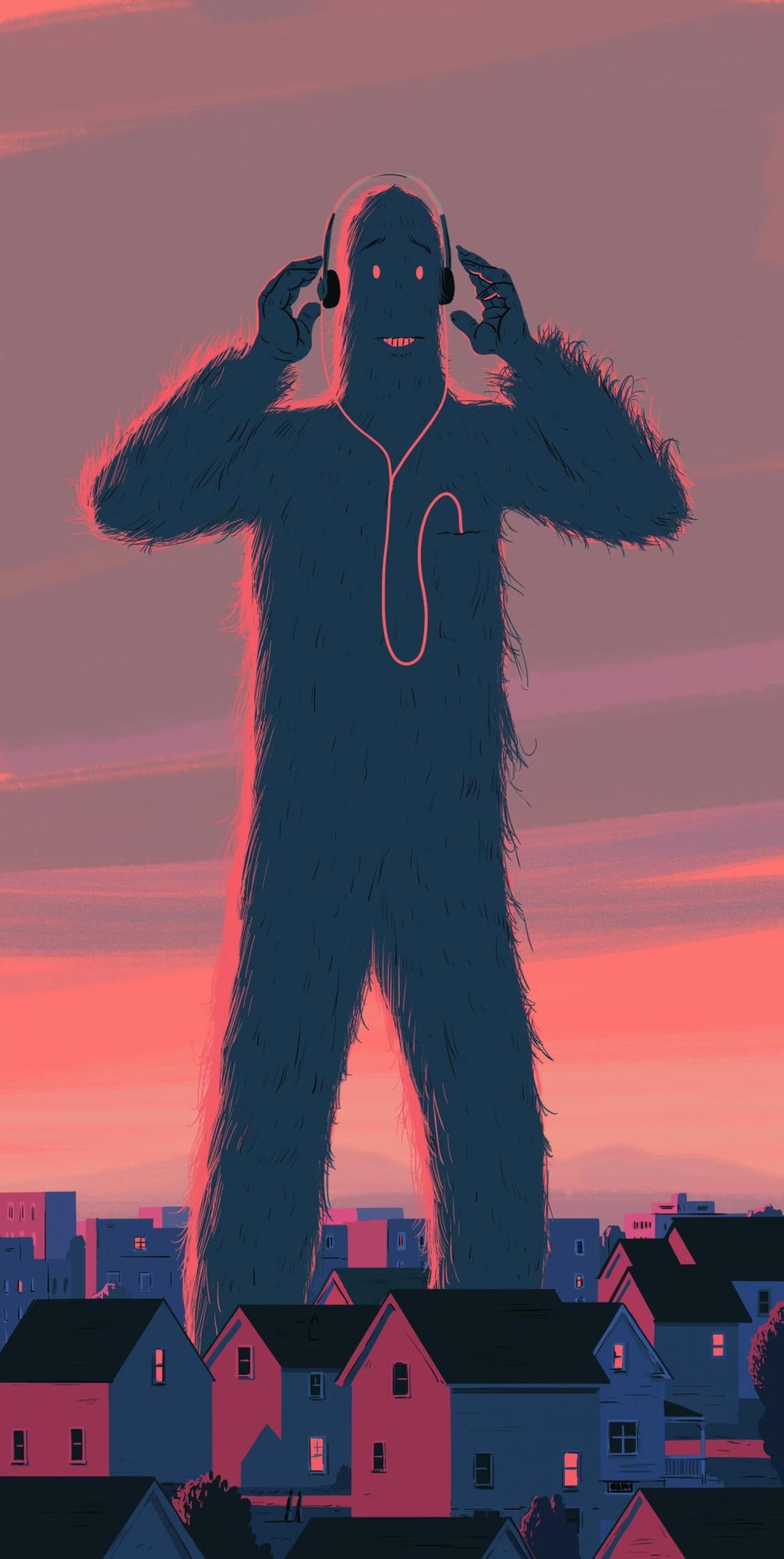
Searching for Bigfoot

Former CU Boulder Journalism Fellow Laura Krantz explores all things Bigfoot in Wild Thing, which the Atlantic named one of 2018's Best Podcasts.
Maybe Bigfoot exists in nature, maybe not. What’s for sure is that the mysterious hairy guy (or gal) has firm footing in American culture.
Bigfoot, aka Sasquatch, and his cousin the yeti, are everywhere — on Great Divide Brewing’s “I believe” stickers, which bear the elusive creature’s silhouette, in shops selling kitschy “Bigfoot crossing” signs, in movies and on TV.
But who, or what, is Bigfoot? And why are we so fascinated by him?
Laura Krantz, a 2014-15 Scripps Fellow in CU Boulder’s Center for Environmental Journalism, wanted to find out. She spent more than a year digging into the scientific, psychological, historical and social aspects of the legendary bipedal primate who, if real, most likely lives in the woods of the Pacific Northwest.
The resulting podcast, Wild Thing, became a hit, with more than 1.5 million downloads since its October 2018 debut. The Atlantic called it one of the best podcasts of 2018 and Vox described it as “delightful.” Listeners loved it, too, writing in reviews that it’s “beautifully scripted” and “the definitive podcast on Sasquatch.”
It’s a huge success story for Colorado podcasts.
In nine 30-minute episodes (and several bonus interviews), Krantz weaves together pieces of the Bigfoot puzzle, touching on biology, popular culture and the psychology of belief.
“We’ve always had monsters in our history,” said Krantz, a former NPR editor and producer. “‘Beowulf,’ the ‘Epic of Gilgamesh,’ this thing that’s beyond the campfire or just outside the city wall. We’ve evolved with these kinds of stories for centuries, and maybe we need them more than we think.”
Through it all, Krantz reminds us why she went down this rabbit hole in the first place, referring often to Grover Krantz, an anthropologist at Washington State University and leading Bigfoot expert who happens to be her distant cousin.
Sharing a last name with one of the world’s preeminent Sasquatch researchers helped her gain trust among Bigfoot seekers, many of whom are simply interested in the world around them — not quacks, as Krantz initially assumed.
“If you look at it from the angle that Bigfoot is a creature that has eluded capture or hasn’t left any concrete evidence behind, then you just have a group of people who are curious about the environment and want to know more about it, which isn’t that far off from what naturalists have done for centuries,” she said.
The seed for Wild Thing began germinating when Krantz stumbled upon a Washington Post story about Grover Krantz in 2006. Afterward, she learned of their family relation.
For years, she considered how best to tell the story. When the true crime podcast Serial launched in late 2014, it captivated millions of listeners around the world. Krantz, a radio veteran, was among them. She decided the medium was ideal for Wild Thing.
Many hit podcasts are backed by well-funded companies. Krantz and husband Scott Carney, a journalist and former Scripps Fellow, created Wild Thing independently. And while they haven’t made all their money back yet, Krantz said they’re close to breaking even and considering options for a slate of podcasts under their Foxtopus Ink masthead.
“It’s a huge success story for Colorado podcasts,” said Paul Karolyi of Denver podcast incubator House of Pod.
Success doesn’t mean Krantz found Bigfoot; she didn’t. And she’s at peace with that.
“I’m not sure I want to find Sasquatch,” she says in the show’s last episode. “I’d prefer the mystery remain intact, for people to go out into the woods and look for something, to feel a sense of possibility and discovery.”
In our print edition, this story appears under the title "Bigfoot, Big Hit." Comment on this story? Email editor@colorado.edu.
Illustration by Paul Blow.

